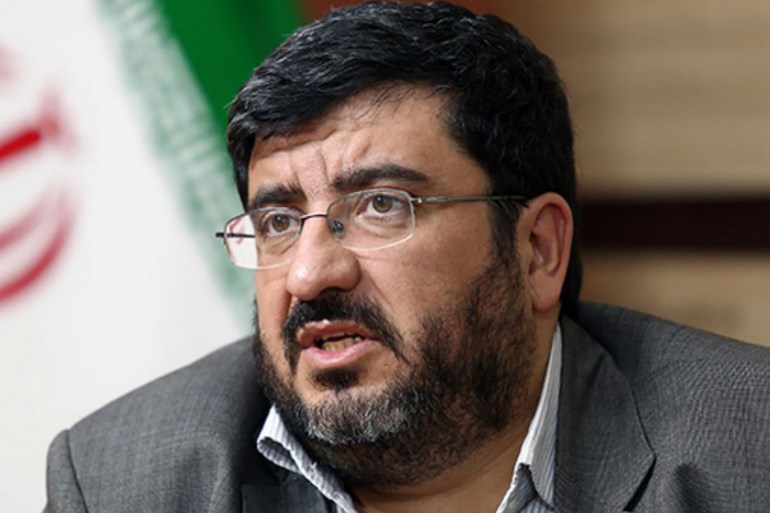TEHRAN -
Iranian experts believe that the Israeli escalation in southern Lebanon and the tanker war in the Gulf;
Part of a series of episodes in which Israel aims to escalate pressure on Tehran with the arrival of a new president to power in the country.
Tensions are escalating between the Lebanese Hezbollah and Israel at a time when talks to revive the nuclear agreement between Iran and the West have stalled, and pressures have escalated on Tehran after it was blamed for the attack on the Israeli Mercer Street oil tanker.
Iranian experts study the recent conflicts in the context of the Iranian-Israeli confrontation in the region, which they consider to be a confrontation aimed at impeding Iran's achievements at the international level.
create tension
The analyst of international affairs and foreign policy, Dr. Mustafa Khosh Jashem, believes that Israel is seeking to escalate tensions with Iran and its allies to bring it into a state of tension and undermine the credibility of its policies and blackmail it, in order to increase pressure on it.
He points out that Israel starts its war based on allegations of attacks that it says it was subjected to to justify its wars.
Khush Jashem added - in his speech to Al Jazeera Net - that the Israelis know that Lebanon is suffering from an economic crisis, and therefore they believe that by creating a conflict with it, they can make the situation worse and lead to collapse and attribute all the problems to Hezbollah.
Kanaani: Israel seeks to pressure America and its allies and create tensions in the region before the Vienna talks resume (communication sites)
Drag the tension to the Gulf
According to Jesham, the Israelis have been trying for some time to extend tension to the Gulf waters in order to exert more pressure on Iran and prevent any rapprochement between it and its Gulf neighbors.
Khush Geshem concludes that the Israelis seek to inflame the atmosphere and create tensions, but they do not wish to engage in a full-fledged war, as well as aim to increase pressure on Raisi's government.
Iranophobia
Some believe that Tel Aviv has always sought to normalize relations and replace the issue of the Arab-Iranian conflict with the Arab-Israeli conflict, and this makes the entry of the Israelis into the Gulf waters fundamentally inconsistent with stability and peace in the region.
The former leader of the Revolutionary Guards, Hussein Kanaani Moghadam, believes that Israel is seeking to exert maximum pressure on the United States and its allies and create tensions in the region in the run-up to the Vienna talks, through air strikes on the resistance forces and attacks on tankers in the Sea of Oman, to consolidate the issue of “Iranophobia.” And intimidating the region - especially the Gulf states - from the Iranian presence there.
Kanaani Moghadam indicated - in his speech to Al Jazeera Net - that what makes Israel escalate in the region is that Raisi's policies are much more severe than Rouhani's policies in issues of support for the resistance, which he described as a large front from the Gulf of Aden to the Mediterranean Sea and seeks revenge against Israel and the United States .
According to experts, the Israelis found that the situation is different from the era of former US President Donald Trump, and therefore they are trying to move to active diplomacy and create more pressure. And their request from Washington and London to raise the issue of the Mercer Street oil tanker to the UN Security Council is part of these efforts;
To block the way for Iran to return to nuclear negotiations as much as possible.
The Leader's Threat to Israel
Dr. Fuad Izdi, a political expert and professor at the University of Tehran, believes that the Israeli threats to Iran will not achieve results, because the Israelis know that if Israel attacks Iran, the latter will flatten Tel Aviv and Haifa - as stated by Supreme Leader Ayatollah Ali Khamenei - and Iran will use its capabilities in southern Lebanon, according to him.
Yazdi added - in his speech to Al-Jazeera Net - that Iran has supported the resistance movements in Lebanon since the beginning of the revolution, and with Iran's help, it was able to expel Israel from Lebanon and defend Lebanon's southern borders, and Iran's policy is to continue with this assistance.
Fouad Izdi believes that Iran will use its capabilities in southern Lebanon if it is subjected to an Israeli attack (communication sites)
new governments
According to analysts, the main challenge facing the new government in Iran is not to appear weak in the face of its enemy, especially with the arrival of a new government in Israel.
Mohsen Jilund, a university professor and expert in international relations, believes that events in the region cannot be read in isolation from a number of developments, including the withdrawal of US forces from Afghanistan and efforts to withdraw these forces from Iraq.
Gilliund added that the issue of the US withdrawal from Iraq could have a significant impact on Israel's security.
Therefore, these developments and events can aim to continue and intensify tensions in the region, and be a good justification for America's survival.
In any case, the Islamic Republic of Iran must respond appropriately to the air and drone strikes, to the Israeli missiles, and to its and its allies' sites, as well as to sabotage and nuclear assassinations in Iran and other Israeli actions, otherwise the security balance and the balance of terror between the two sides will change. Each has its own consequences and effects.

